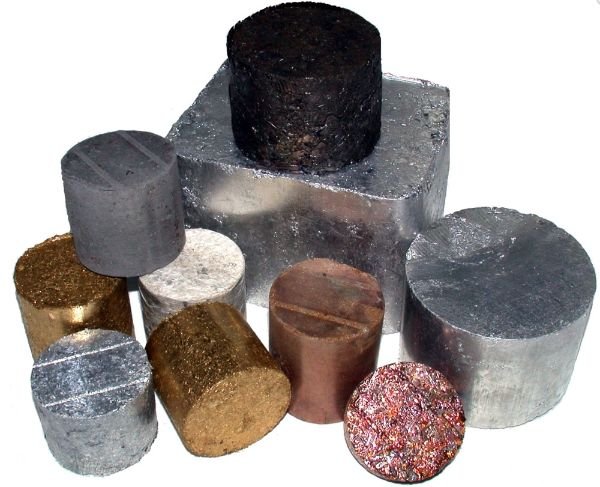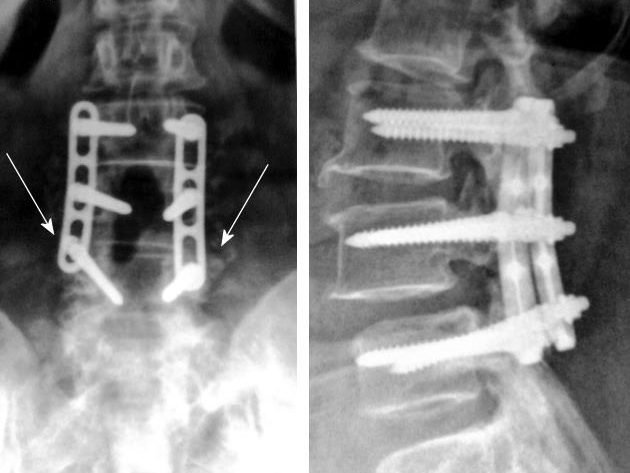Is It Possible To Deceive a Metal Detector?
Metal detectors are great little devices for hunting treasure and keeping us safe at airports, however, from time to time metal detection can appear inaccurate, leaving you wondering with the question, can you trick these metal detectors?
Well, no, it is very hard to fool and metal detector as they will target any types of metal that alert their electromagnetic field, whether you are passing through airport metal detectors or using handheld treasure metal detectors.
However, some people do argue you can hide a piece of metal from a detector by wrapping it in an asbestos sheet, but this still wouldn’t be 100% effective.
We have composed an informative guide below that will explain how metal detector work, why they might be inaccurate, metal objects that they can and cannot pick up, as well as how to trick one.
So without further chat, let’s get into it!
How Do Walk-Through Metal Detectors Work?
To understand whether or not you can trick a walk-through metal detector, you will need to familiarise yourself with how both of them work.
Walkthrough metal detectors will alert you to particular types of metals via their electromagnetic field, they do this through pulse induction which is also known as PI.
The way this metal detecting system can target certain metal objects is by using coils. This coil transmits short pulses through which creates small electromagnetic fields. Pulses produced by each kind of metal detector will vary according to the model, some can send 100 pulses per minute while others can send 1000.
When a piece of metal goes through this small field, a reflective electromagnetic field is then created which will trigger the receiver coil and then alert the metal detectors sound.
This whole trigger system will only last about 30 microseconds.
In terms of a walkthrough system, this electromagnetic field will cover the whole area of the detector and has multi-zones which alert authorities to exactly where metal objects are on a person. This works by the walk-through detectors having multiple coils to target the exact location and object is found.
What Metals Do They Pick Up?
These devices can alert you to a piece of metal that is either ferrous or non-ferrous, we have listed out the metal types below that a detector will pick up.
- Iron.
- Nickle.
- Copper, brass.
- Aluminium.
- Tin.
- Lead.
- Gold.
- Silver.
- Bronze.
- Zinc.
What Is The Difference Between Ferrous & Non-Ferrous?
Ferrous metal items are very strong and contain iron, some ferrous metals are cast iron, carbon steel and stainless steel, a metal detector will have a very easy time picking up these metal items as they are high in conductivity.
Non-ferrous metals on the other hand have little iron inside of them and are corrosion-free, they are based on the type of metal that we have listed above.
What Metals Can Metal Detectors Not Pick Up?
So, if a metal detector can nearly detect any of these metals above, is there any piece of metal which one of these detectors can’t detect?
A piece of metal that proves hard for detectors to pick up is stainless steel due to its low electrical conductivity along with its low magnetic permeability.
Some other elements that will struggle to get noticed during metal detecting are –
- Pearls.
- Diamond.
- Paper.
- Bones.
- Liquid.
- Glass.
- Plastic.
During hunting, you will not be able to find a diamond in the ground unless it is within a metal fitting, some may come across diamond however when they target gold during metal detecting as they are often located nearby.
Factors That Can Interfere With Handheld Metal Detecting
Apart from the fact that these devices struggle to detect stainless steel and gold, other factors could potentially reduce the metal detecting accuracy when hunting.
- The ground – If you are hunting on a land full of thick snow then your detector will have a hard time getting a signal from valuable targets, detecting on the sandy ground may also give false readings due to the iron present in the sand.
- Depth – Some valuable targets can give you difficult times when hunting because they are too far buried in the ground, you will likely need a higher quality detector for deeper depths.
- Water – If you try and use an average detector underwater or on wet sand, it will not be able to pick up metals on this wet ground and could cause damage to the machine.
- Type – Old detectors will often miss out on valuable targets due to their dated technology.
- Mineralised land – A lot of salt is present in mineralised public land, this can cause false signals due to this type of ground, you would need to ensure that your model has a great ground balance to tackle this.
What Causes Walk-Through Metal Detectors To Go Off?
Now we know what can cause metal detectors to give false readings and what elements they can’t read, let’s understand what can cause a walk-through security metal detector to beep that alarm.
You may or may not have been the person who sets of a metal detector before, this can be a frustrating experience, especially when you are not carrying anything dangerous, and can cause a time-consuming pat-down.
So as you can know exactly what will set one of these metal detecting machines off, we have listed the common culprits below.
- Guns/knives (which is something you shouldn’t have).
- Aluminium wrappers.
- Hair accessories.
- Coins.
- Shoes (that’s why we have to remove them).
- Metal parts in the body such as a hip replacement.
Can Excess Iron In People Set Off a Detector?
You might have heard that excess iron in peoples bodies can cause a detector to be set off by the coil of wire on these PI machines.
While this is possible, it is quite rare and most of the time people with this disorder will have an issue with their body using the iron produced from foods, causing them to store excess and trigger metal detectors.
Can I Trick Walk-Through Metal Detectors?
Now we know what can set a metal detector off, you might be wondering if there is a trick for metal detectors that can make them ignore a type of metal or conceal it from their coils.
Tricking a metal detector is very hard, especially as the technology of PI is developing more and more, this means they can detect metal even if it is concealed in numerous pieces of clothing.
One way that is said to trick a metal detector is by wrapping the piece of metal that you are trying to take through in asbestos material, this is because this material is said to absorb radiation, but is not entirely confirmed.
Another way which is said to stop a detector from working is by producing an opposite magnetic field, however, this is also through trial and error, but can be tested with a handheld treasure metal detector for some interesting results.
The only way a metal detector will likely miss you is due to the person operating it, untrained people who are operating these machines may not listen properly to the detector when it goes off, this is the biggest weakness of these devices.
Will Artificial Body Metal Set Off an Airport Metal Detector?
Yes, unfortunately, if you do have a metal implant of some sort in your body such as a hip replacement or knee replacement then you can have the potential to set off one of these detectors.
This can not be avoided and you will have to alert the security staff before passing through the detector who will likely use a hand-held model to check you again.
Having a medical document in hand can be a huge time saver in this situation and stop you from having to have an intrusive pat-down.
Tips For Improving The Accuracy Of Your Treasure Metal Detector
Now we know all about tricking a metal detector, as well as what they can and cannot detect.
We have put together some short hunting tips below that can help you improve your metal detecting and not miss out on gold or other valuables in the ground.
- Use a low discrimination setting – If you set your discrimination too high when metal detecting you could potentially be missing out on some hidden treasures such as gold when hunting as you will lose depth, this is where target ID and notch settings can come in useful, although low discrimination will give you a lot of false signals, its worth it when you want to have the best chance hunting.
- Keep it short and low – Short swings that are parallel to the ground are the best for finding objects, you should additionally keep the coil low to the ground when hunting and use an accessory coil cover to protect it from any damage on hunting sites.
- Go slow – You will be more likely to miss out on objects if you are swinging too fast, instead have a controlled medium speed swing but also avoid going too slow.
- Wear headphones – Wireless headphones are the best to use for metal detectors and will ensure you hear everything when metal detecting, making sure you don’t miss out on any valuables. These headphones should be noise cancelling too.
- Overlap – By overlapping your pattern of detecting you have a great chance to zone in on targets, especially ones buried at great depth.
- Utilise wet ground – Wet ground will allow you to get more accurate readings when hunting as the coils can detect further into the ground.
- Practice – Practising will make you better at hunting on any type of ground and heighten your chances of finding some solid gold nuggets!
Frequently Asked Questions About Tricking Metal Detectors
Can you hide a cellphone from a metal detector?
It is very hard to hide a mobile phone from a metal detector as they have several different types of metals inside of them. To make it undetected by a treasure metal detector (hobby type) you should bury it down as far as you can, as depth can help mask conductivity.
Are some metals harder to detect than others?
Yes, metals that are hard to detect are non-ferrous like stainless steel and lead, this is because they have a very low electrical conductivity.
Can I block a metal detector?
No, it is pretty impossible to block a metal detector, covering it with more things when going through a walk-through detector would just make it more attractive, the only way you can deter a detector from sensing something is by burying it down very far and covering it with a distraction.
Why do some people always set off metal detectors?
It is said that some people have higher iron levels than others which is why they can set off metal detectors, other people may have metal implants or have forgotten about metal objects in their pockets.
Can I make a metal detector?
You could potentially make yourself a detector to use on basic hunting sites out of a radio and a battery calculator, however, this would never be as accurate as a shop-bought metal detector. The radio sounds will alert you to any metal objects the radio waves pick up.
Is walk through metal detectors harmful?
There is a lot of talks that the radiation from walk-through detectors is harmful, however, although these devices do expose you to radiation it is of a very low level and will not create any serious harm.
What technology do metal detectors use?
Three main types of technology are found in detectors; pulse induction which is used in security metal detectors and high-end models, very low frequency (VLF) which is more common in hand-held detectors and also more affordable. Then lastly BFO is used more on basic kid models.
Can gold pass through a metal detector?
Gold will be easily detected when brought through a metal detector, even if you cover it up due to its conductivity, that is why you often have to remove jewellery before going through a detector.
Will a metal detector detect my hip implant?
Yes, a walk-through security metal detector will detect your medical hip implant, it’s best to bring a medical certification to prove this.
Does mineralised ground trick a metal detector?
The mineralised ground can be very confusing due to high magnesium content in the ground which gives the device false signals, this can make you think there is something valuable when there is not, but can normally be resolved by changing the ground balance.
Can A Decent Metal Detector Be Used to Trick a Metal Detector?
A decent metal detector can be used to trick a metal detector, as its sensitivity and advanced features can outsmart less sophisticated models. To find the best one for your needs, consult a reliable metal detector pricing guide to compare different options and make an informed decision.
Final Words
Overall, it is very hard to trick a metal detector deliberately by blocking it or deceiving it, the only ways a metal detector may not detect something is if the ground conditions are bad, the object is too deep or you aren’t listening properly for the alerts. In terms of walk-through security detectors, the only way these machines cannot detect metal is if the person operating it is not checking.
You should know that some metals are harder for these devices to find than others such as stainless steel and lead, while some are much easier as they have a higher conductivity.
Never try and block a security metal detector or bypass it as this very illegal and with the high-quality PI technology now in most models, the chances are very slim that you would be able to pass through any metal undetected or trick the detector.








